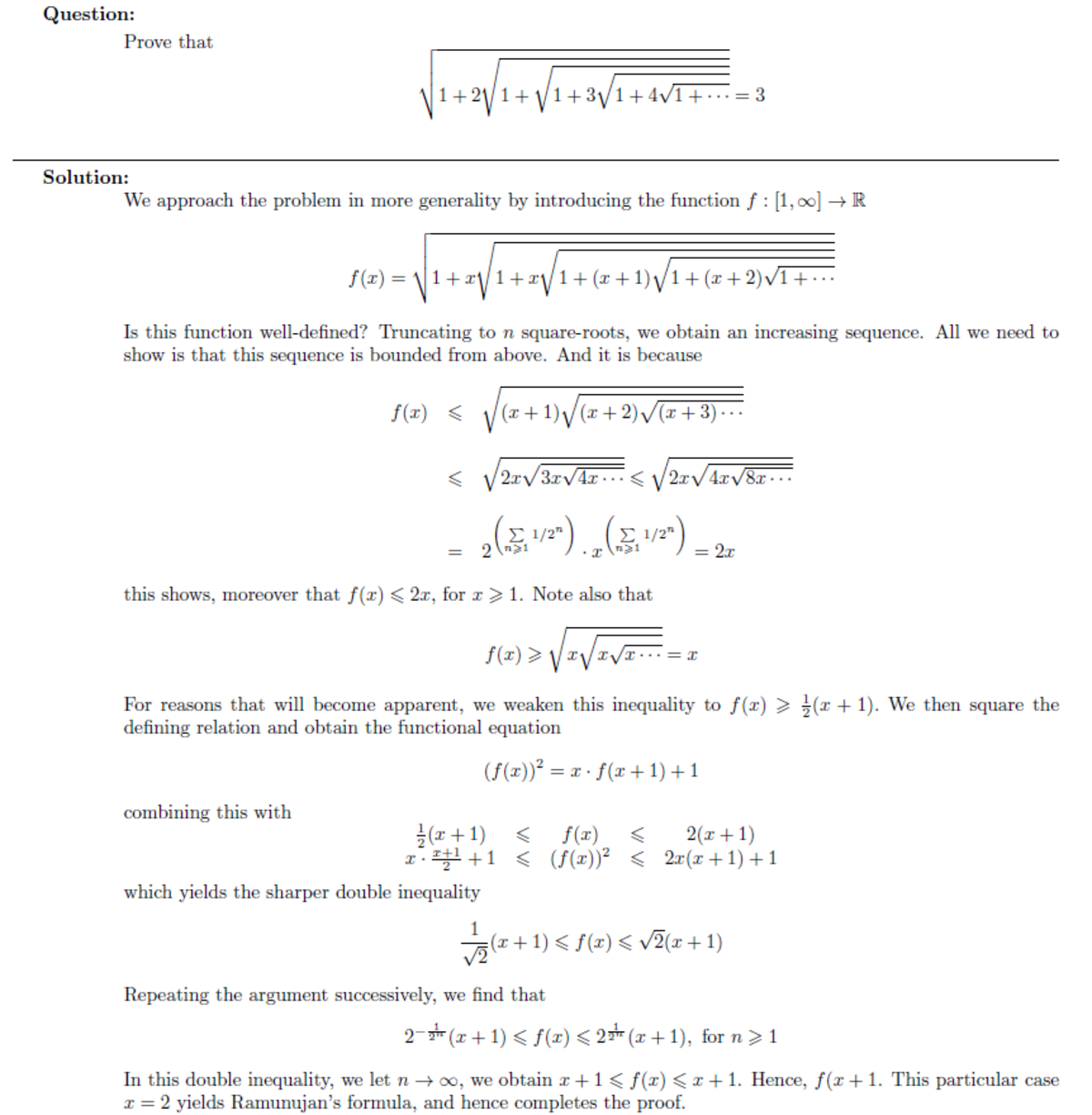Another Lucas Number?
1 6 2 2 0 7 − 2 2 0 7 − 2 2 0 7 − ⋯ 1 1
The expression above can be expressed as d a + b c , where a , b , c , d ∈ Z with g cd ( a , b , d ) = 1 and c is square free. Find the value of a + b + c + d .
The answer is 9.
This section requires Javascript.
You are seeing this because something didn't load right. We suggest you, (a) try
refreshing the page, (b) enabling javascript if it is disabled on your browser and,
finally, (c)
loading the
non-javascript version of this page
. We're sorry about the hassle.
1 solution
You still got to prove that the infinitely nested function converges to a finite value.
If you replace all the 2207s in the question with 1's, you will get a nonsensical answer.
Log in to reply
Hey @Pi Han Goh ! I have never seen "proving convergence", can you please tell me some wiki/video to understand it? Thanks! :)
Log in to reply
Here's a separate question that shows the convergence of an infinitely nested function.

Actually @Mark Hennings addressed it quite nicely here
Log in to reply
@Pi Han Goh – Wow! So many references! I will try to read and understand them. Thanks a lot!
The golden ratio to the power of sixteen is a little less than 2207 ( by a 0.0005 ish ) and we do expect that due to that -1/2207 approximately so it does converge!
Log in to reply
I mean, it all started with (first line = k), so the author of the solution already assumes that the nested function converges.
Just because we know that k = (1+sqrt5)/2, the convergence has not been proven.
1 6 2 2 0 7 − 2 2 0 7 − 2 2 0 7 − ⋯ 1 1 2 2 0 7 − 2 2 0 7 − 2 2 0 7 − ⋯ 1 1 ⟹ k 1 6 + k 1 6 1 = k = k 1 6 = 2 2 0 7 Using the identity, ( a n + a n 1 ) 2 = a 2 n + a 2 n 1 + 2 , we can scale down to k 8 + k 8 1 k 4 + k 4 1 k 2 + k 2 1 k + k 1 = 2 2 0 7 + 2 = 4 7 = 4 7 + 2 = 7 = 7 + 2 = 3 = 3 + 2 = 5 Solving the quadratic k 2 − 5 k + 1 = 0 , we get k = 2 5 + 1 > 1 and k = 2 5 − 1 < 1 . So, we have, 1 6 2 2 0 7 − 2 2 0 7 − 2 2 0 7 − ⋯ 1 1 = 2 1 + 5 Therefore, a = 1 , b = 1 , c = 5 , d = 2 ⟹ a + b + c + d = 9 .